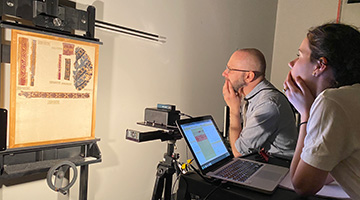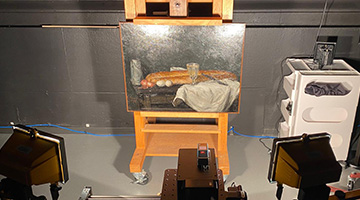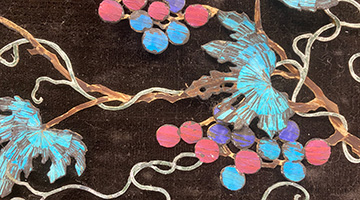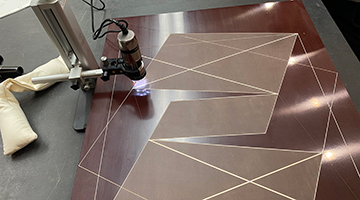About the Center for Scientific Studies in the Arts
Housed within the Office for Research, the Center for Scientific Studies in the Arts is a collaborative endeavor that pursues objects-based and objects-inspired scientific research to advance the role of science within art history, curatorial scholarship, archaeology, and conservation. The goals of the program are to enrich the breadth, scope, and reach of scientific studies in the arts and in the wider field of conservation in the United States and abroad, by leveraging resources at the Art Institute of Chicago and materials-related departments at Northwestern University. This research and education initiative also provides enhanced training opportunities for participants through involvement in university-museum multidisciplinary programs.
LEARN MORE
Projects
Submit a project proposal
Start a research project in collaboration with Northwestern University faculty and Art Institute of Chicago staff.
Featured Projects
View our projects which strike a balance between object-based (for example the study of a specific work of art, or groups of objects) and objected-inspired work (for example the development of new investigation methods or testing of a new conservation treatment).

Ancient Dyes and Artificial Intelligence: A Multifaceted Approach to Exploring Egyptian Textiles
Researchers conducted technical analysis of 42 Coptic textiles from the Art Institute of Chicago's collection to date them accurately and better understand ancient dyeing techniques.

Discovering the Portrait Paul Cezanne Hid Behind a Still Life
Using sophisticated new methods of imaging in combination with powerful machine learning algorithms, scientists reconstructed a hidden portrait — and potentially the identity of its subject.

Birds of a Feather: Natural Structures Create the Colors of Qing Dynasty Featherworks
Researchers applied a combination of analytical techniques to study the materials and techniques used to create a calendar screen that dates from the Qing Dynasty in China (1644–1914).

Perfect Plastics: Investigating Josef Albers’ Structural Constellations
Researchers employed microscopic and spectroscopic analysis on a series by Josef Albers to better understand how to protect and conserve plastic artworks.






